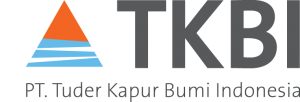In 2015, UnitedHealth Group (UHG) entered into a Corporate Integrity Agreement (CIA) with the Office of Inspector General (OIG) of the U.S. Department of Health and Human Services (HHS). This agreement was the result of an investigation into allegations of health care fraud and kickbacks. Now, five years later, it’s time to take a look at how UHG has upheld its end of the agreement.
The CIA required UHG to implement a comprehensive compliance program, which included hiring an independent monitor to assess the company’s compliance efforts and report to the OIG. The monitor’s reports over the past five years have shown that UHG has made significant progress in improving its compliance program, including enhancing its training and education programs for employees, strengthening its internal controls, and implementing new policies and procedures to prevent and detect fraud and abuse.
One of the key areas of focus for UHG under the CIA has been its relationship with health care providers. The agreement required UHG to implement stringent controls over its relationships with providers, including ensuring that contracts and payments were properly documented and reviewed for compliance with applicable laws and regulations. UHG has made significant progress in this area as well, with the monitor’s reports indicating that the company has implemented new controls and processes to review and approve provider contracts and payments.
Another area of focus under the CIA has been UHG’s billing practices. The agreement required the company to implement new controls and oversight around its billing practices, with a focus on preventing overpayments and ensuring that claims were properly reviewed and documented. The monitor’s reports indicate that UHG has made significant progress in this area, with the company implementing new controls and processes to review and validate claims before payment.
Overall, the five-year review of UHG’s compliance with the CIA has shown that the company has made significant progress in improving its compliance program and implementing stronger controls to prevent and detect fraud and abuse. While there is always room for improvement, the monitor’s reports indicate that UHG has taken its obligations under the CIA seriously and has made a real effort to improve its compliance program.
In conclusion, the UHG CIA has been an important tool in the fight against health care fraud and abuse, and the company’s progress over the past five years is a testament to the importance of robust compliance programs in preventing and detecting fraud. As the health care industry continues to evolve and new risks emerge, it is important for companies like UHG to remain vigilant and continue to invest in their compliance programs to ensure that they are meeting their obligations to patients, providers, and taxpayers alike.

Recent Comments